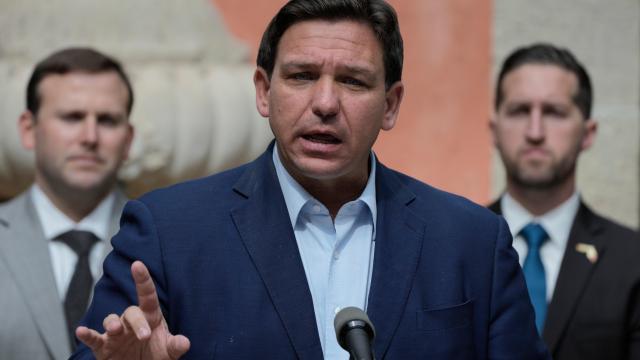In a major win for social media companies, a court of appeals upheld an order to block a Florida law that would’ve allowed politicians to sue online platforms if they were to get banned or have their content moderated.
The 11th Circuit Court of Appeals sided with a district court’s ruling that deemed the Florida law unconstitutional just hours before it was meant to take effect, The Washington Post reports. The court ruled that social media companies are private actors, and therefore their actions are protected under the First Amendment. However, some of the law’s provisions could still be enforced, that includes allowing those who have been banned from the social media platforms to access their data for up to 60 days.
The law was first proposed by Florida Governor Ron DeSantis in January 2021 shortly after Twitter banned former President Donald Trump. It was enacted in May 2021, and enforced a $US25,000 ($34,705) fine on social media companies if they were to remove a candidate for statewide political office from their platforms. The law also allowed both the state and individuals to sue social media companies if they felt that they violated the law by moderating online content or “shadow banning” candidates.
NetChoice and the Computer & Communications Industry Association sued in order to block the law. “The act discriminates against and infringes the First Amendment rights of these targeted companies, which include plaintiffs’ members, by compelling them to host — and punishing them for taking virtually any action to remove or make less prominent — even highly objectionable or illegal content, no matter how much that content may conflict with their terms or policies,” the lawsuit stated.
Right-wing politicians have been complaining that social media companies are censoring them, removing them from their platforms or shadow banning them in an effort to limit their reach to the public. They argue that this violates freedom of speech, and that social media platforms are just there to carry the opinions of their more liberal users.
Last year, Texas passed a similar law that would allow users to sue social media companies for having their accounts suspended or content blocked, referring to these sites as “central public forums.” The law was first put on hold, then reinstated earlier this month.
The conversation around free speech on social media platforms has grown more tiresome with billionaire Elon Musk feeling the need to weigh in after his offer to purchase Twitter for $US44 ($61) billion was approved. On March 25, Musk polled his 86.4 million followers on whether or not they believed Twitter adhered to the principles of free speech. The Tesla CEO has also indicated he’d let Trump back on Twitter (if he wants to) should he take control of the company.
